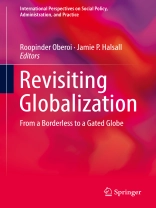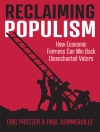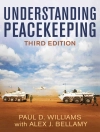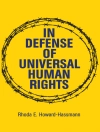This provocative volume takes an international, multidisciplinary approach to understanding globalization and assessing its economic, social, and environmental effects. Representing the Global North and South, it addresses important debates stemming from recent political events in the U.S. and U.K., the continuing rise of information technology, and the constant struggle between corporate interests and the health of the planet.The human outcomes of world human rights challenges are considered in the ongoing global narratives of migrants, refugees, and disabled persons, as well as possibilities for greater social equity and integration.This expert synthesis takes critical steps to reshape the concept of globalization from an amorphous mass of objectives and initiatives to a forward-looking model of clarity and balance.
Included in the coverage:
- Globalization and migration: is there a borderless world
- A comparative assessment of climate policies of top emitters.
- Neo-protectionism in the age of Brexit and Trump.
- Working inclusively and redefining social valorization in the globalized world.
- Understanding the strategy of M&As in the globalized perspective.
- Reappraisal of social enterprise in a globalized world.
Revisiting Globalism will be of particular interest to those in the academic field and the statutory and nonprofit sectors whose work deals with teaching social sciences in higher education settings.
Table des matières
Introduction.- Ethics and globalization: the ethics of outsourcing.- Working inclusively and redefining social valorization in the globalized world: activist, research, advocacy, and the disadvantaged.- Globalization and multinational corporations in the developing world.- Comparability of international climate policy architecture of top emitters with regard to environmental effectiveness, economic efficiency, equity, and political feasibility.- The art of balancing the global order.- Globalization and migration: is there a borderless world?.- Globalization and managing multicultural organizations.- Concluding remarks.
A propos de l’auteur
Dr Roopinder Oberoi is a permanent faculty at Department of Political Science, Kirori Mal College Delhi University for 14 years. She did her M.A, M.Phil and Ph D from University of Delhi. She specializes in the area of Political Science, Public Administration, Public policy and Corporate Social Responsibility and Sustainable Development. In the Year 2009 she was awarded a Post-Doctorate Research Fellowship by the University Grant Commission. She also received Emerald Outstanding Contribution Award in 2016. She is presently working on International project with British Council. She has published a book on Corporate Social Responsibility and Sustainable Development in Emerging Economies, Lexington Publisher, USA (2015). She has contributed nearly 35 papers in various peer reviewed national and international journals and presented papers at national and international conference in the field of Public Administration, New Governance Paradigm; Corporate Governance and Corporate Social Responsibility. She is on the advisory board of Research Committee 35, of International Political Science Association.
Jamie P. Halsall is a reader in social sciences in the School of Human and Health Sciences at the University of Huddersfield, UK. His research interests lie in the field of sociology of community. Currently, Jamie is a fellow of the Royal Society of Arts and the Royal Geographical Society, and in January 2017 he was awarded Senior Fellowship of the Higher Education Academy.












